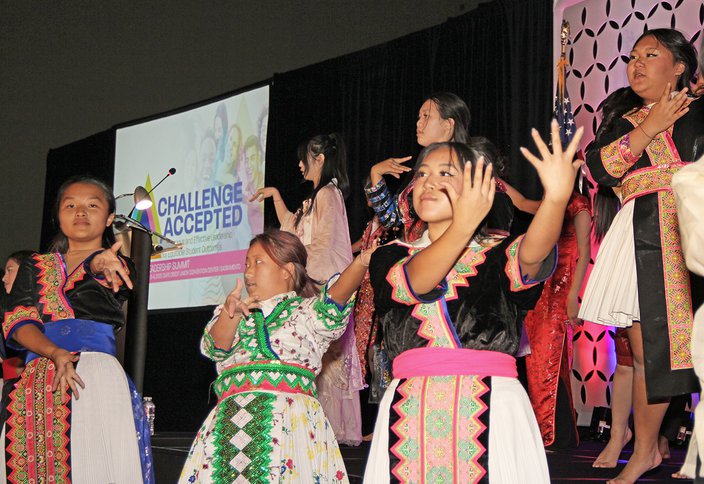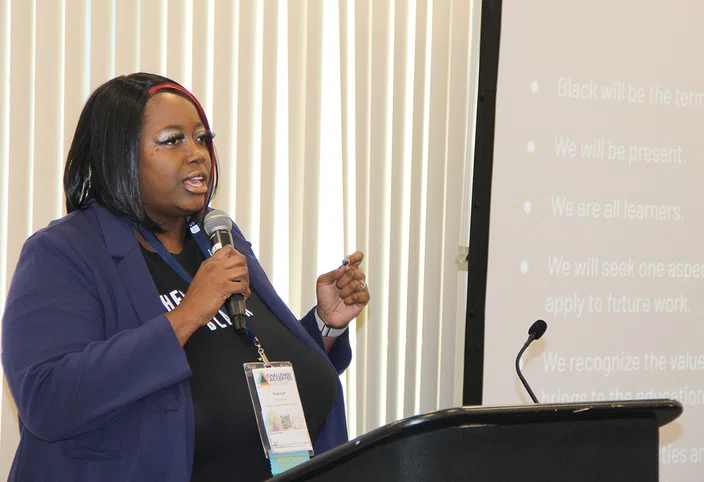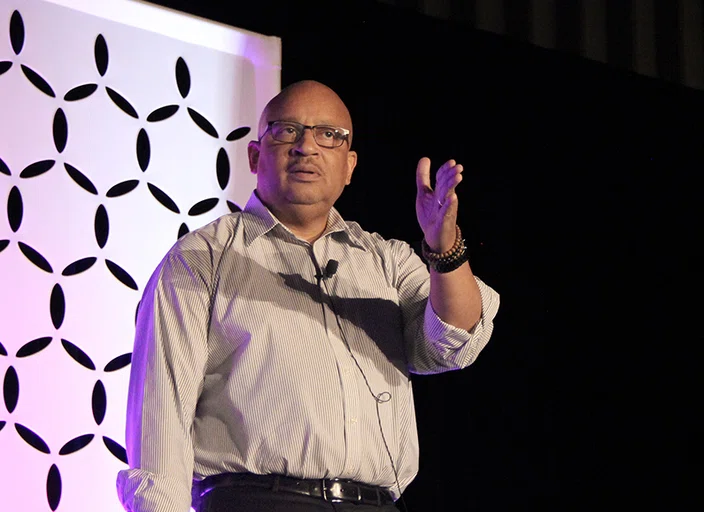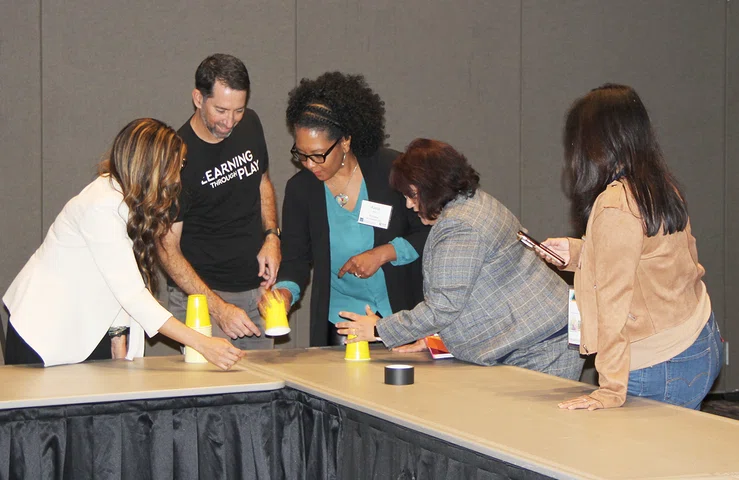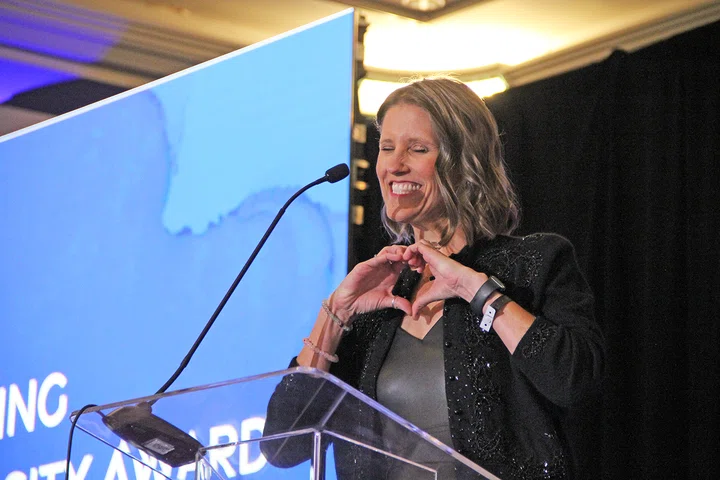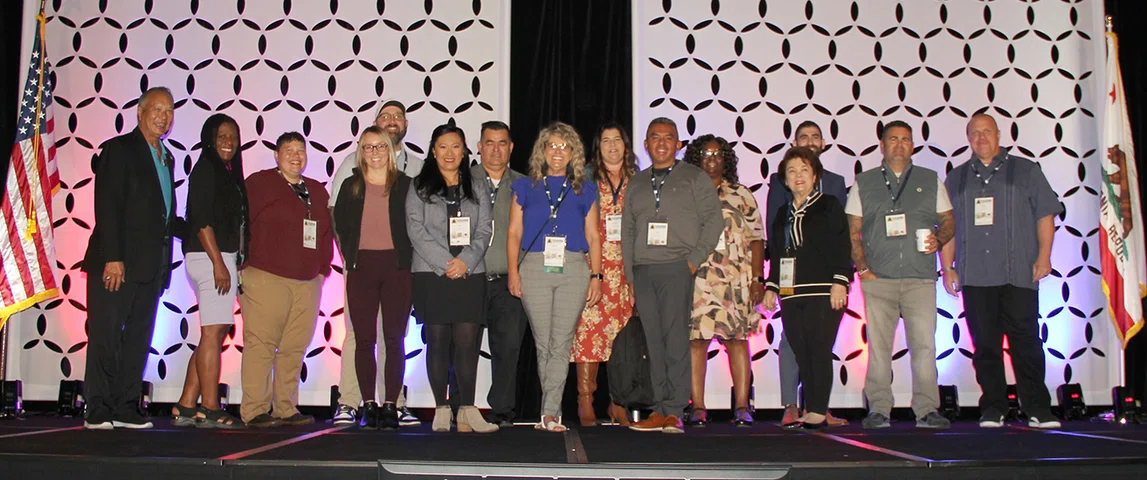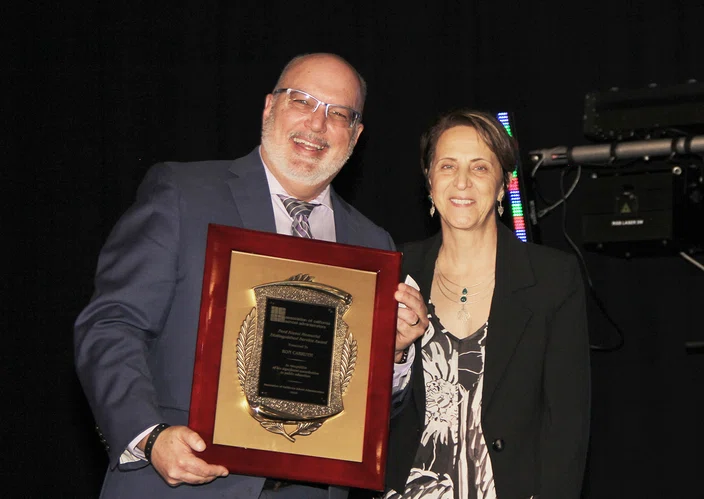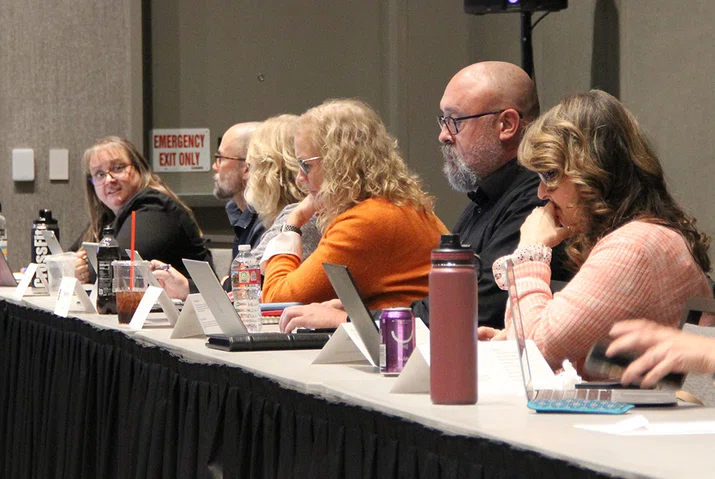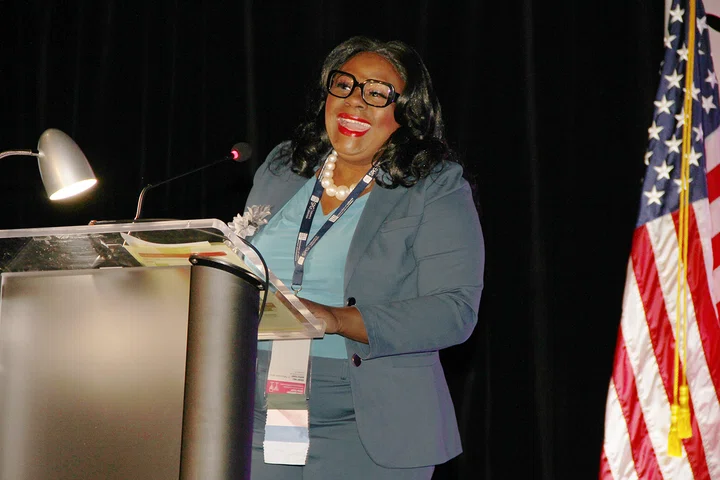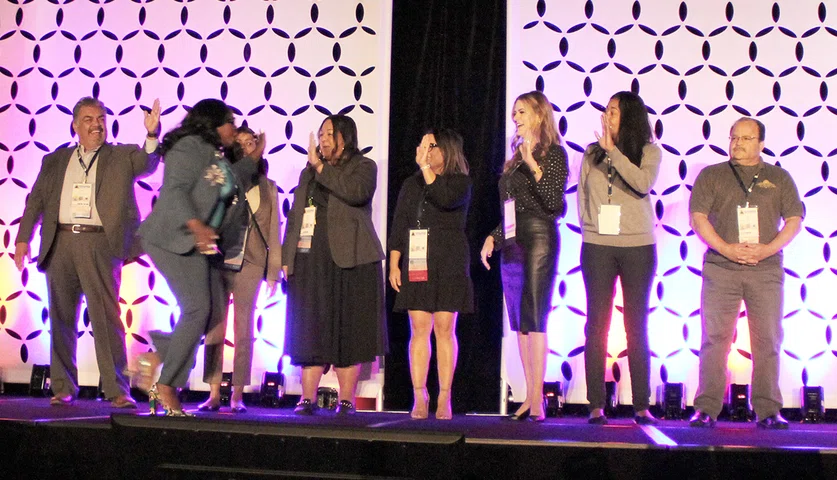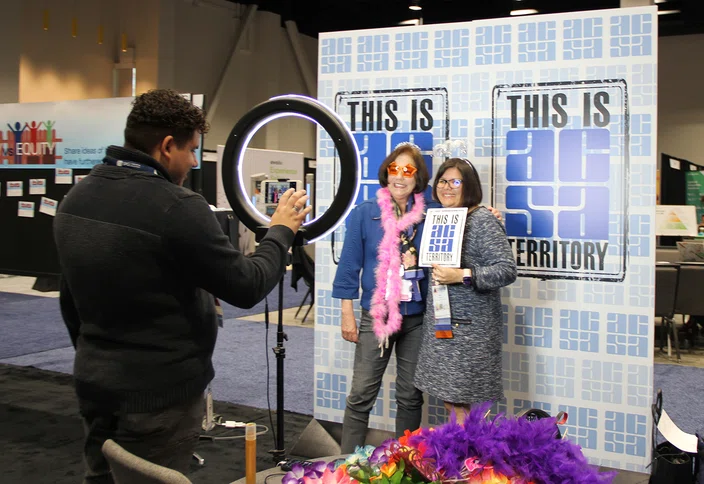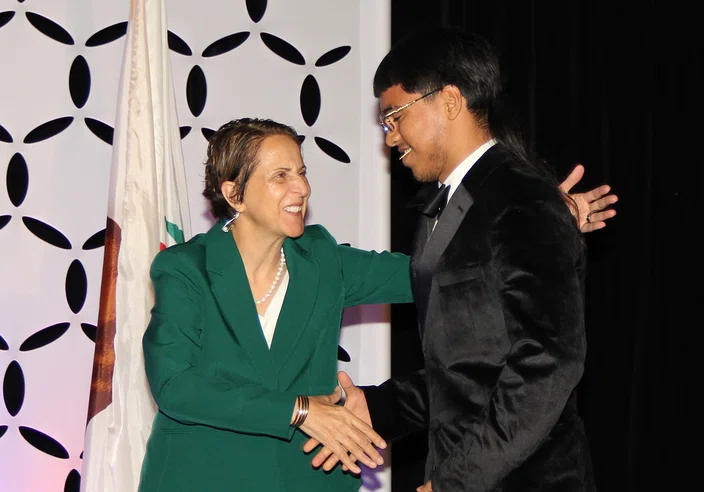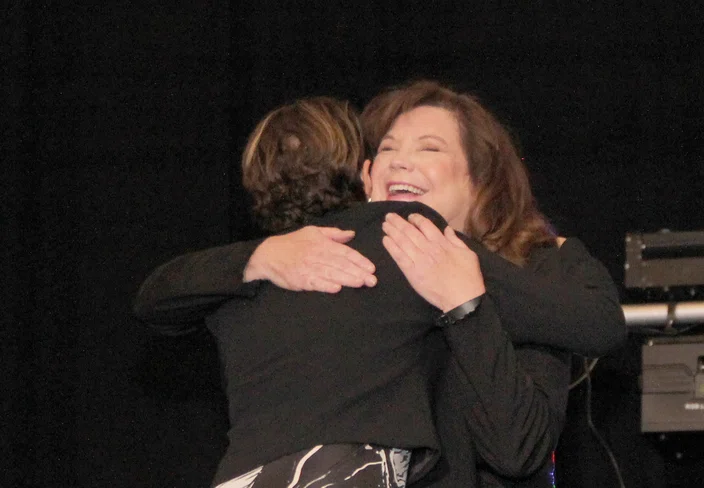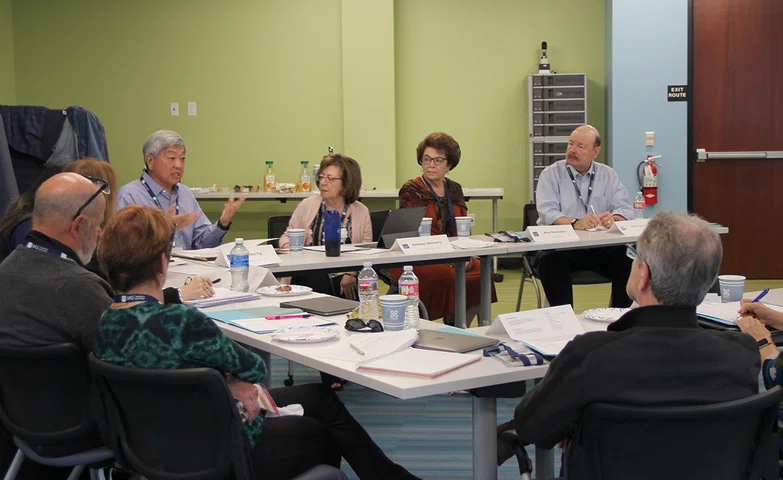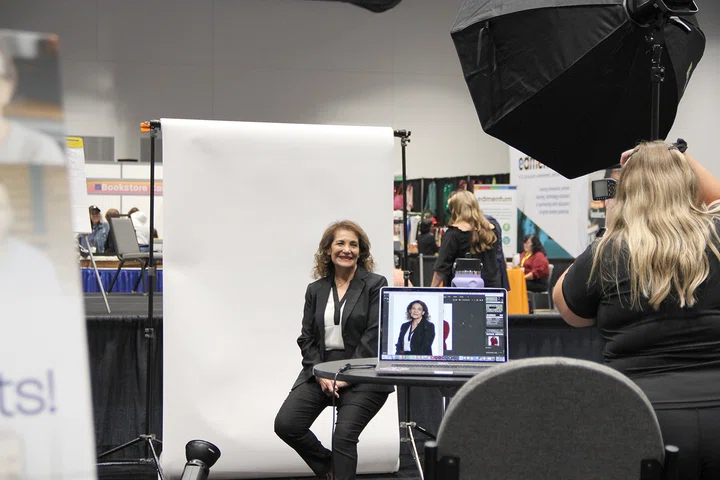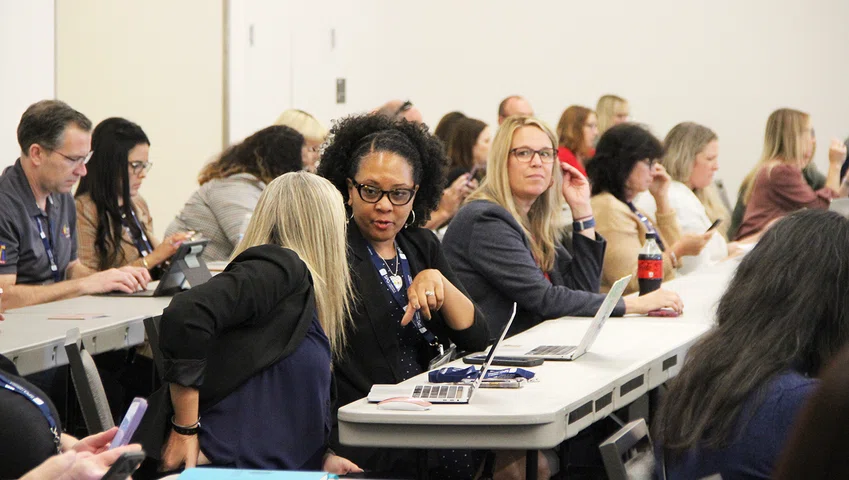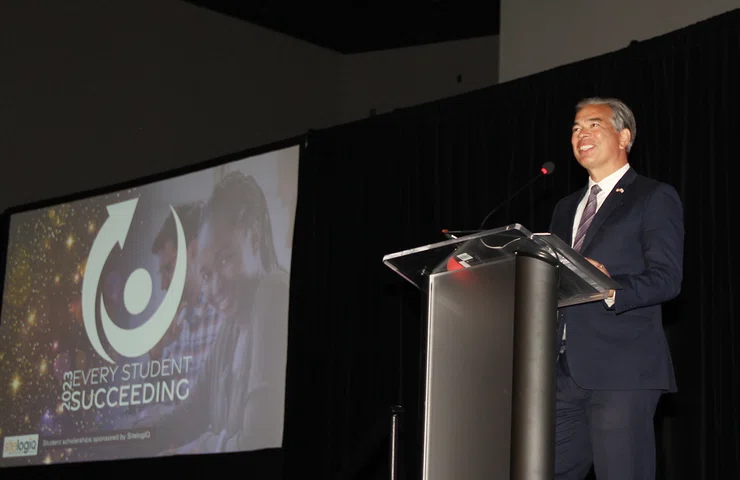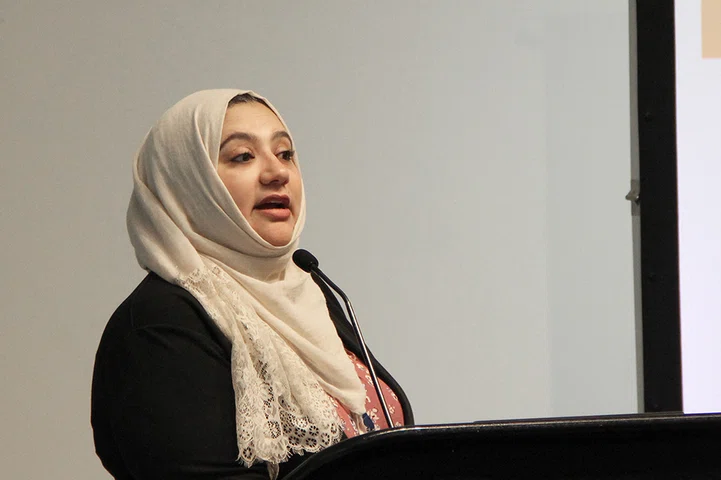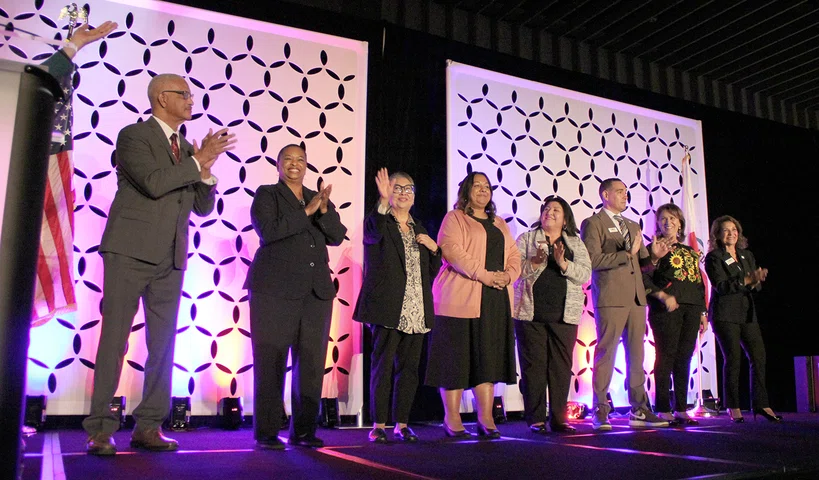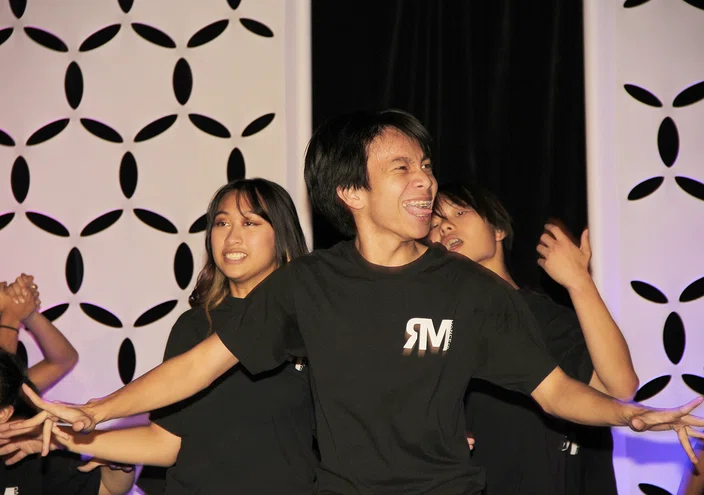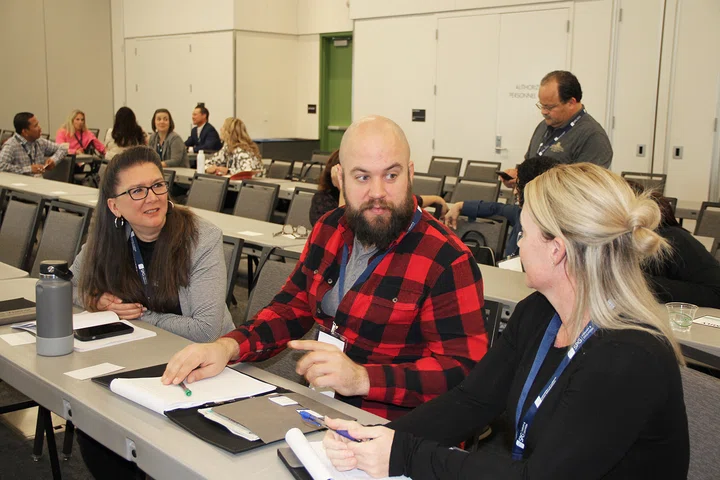What challenge do you accept?
School leaders gather in Sacramento for the 2023 Leadership Summit
November 13, 2023
Attendees at the 2023 ACSA Leadership Summit all had one thing in common: they have accepted the challenge to create equitable outcomes for their students.
“You applied. When you applied, you’ve accepted the challenge,” said ACSA Vice President Daryl Camp, speaking to school leaders at the annual summit, which was held Nov. 2-4. “Ask yourself every day — what challenge are you accepting?”
Nearly 800 administrators from all levels of school leadership came to the SAFE Credit Union Convention Center in Sacramento to gain crucial knowledge and strengthen their resolve to be courageous school leaders.
Leadership Summit Planning Committee Chair Patricia Brent-Sanco said she hopes attendees accept the challenge to “change our educational systems so that all children feel welcomed, seen, valued and heard.”
School leaders found many opportunities to network during the conference. For the first time, open houses were held for each affinity group — California Association of African-American Superintendents and Administrators, California Association of Asian & Pacific Leaders in Education, California Association of Latino Superintendents and Administrators, and LGBTQ+ educators — creating spaces where leaders could gather and network. Attendees were also able to attend ACSA Academies Alumni Reception on Wednesday to reunite with fellow Academy graduates.
“It’s been so much fun to see familiar faces and catch up with people that I haven’t seen in awhile. … It’s just good for the heart,” said Michael McCormick, superintendent of Val Verde USD and an ACSA member since 1997. “I’m so grateful for ACSA all these years of putting on events like this where we can network and recharge the batteries, especially in today’s times. I think that’s so valuable.”
On Friday night, ACSA honored 26 exceptional education leaders during the President’s Awards Dinner. ACSA President Parvin Ahmadi addressed the school leaders, who she said don’t often get recognized for the work they do.
“Your leadership matters. You co-create a culture with your team. You set the tone and you look for the best in everyone,” she said. “You look at students as your own children, you give them all the love you can, and you know that some need a little more of your attention and love than others, and you give it.”
Here’s a few of the other things we heard at this year’s Leadership Summit.
“These perspectives are gold for me.” ACSA Senior Director of Equity, Diversity and Inclusion and Educational Services Tracie Noriega during the Equity Committee meeting, where committee members were discussing ways to ensure that equity is a through-line for all ACSA professional development. Sixteen of ACSA’s Councils and Committees met on the Wednesday before the conference to discuss ways to align their work to ACSA’s Strategic Plan.
“My nickname this year has been Kindergarten Cop.” Scott Meyer, director of Behavior Intervention and Student Services with Folsom Cordova USD, shared alarming statistics about chronic absences in kindergarten, illustrating the need to look at grade-level attendance data and target efforts accordingly. His presentation with Erica Peterson of SchoolStatus highlighted ways districts can measure attendance, communicate its importance to families and create systems that quickly address issues.
“There is no ‘Black Kid Whisperer.’” Presenter Noaveyar Lee, program specialist with San Bernardino City USD, shared strategies for recruiting and retaining black educators based on research from her doctoral thesis. She said that Black educators often feel responsible for “all things Black” and are subjected to the myth that they are better at working with Black students.
“I’m proud of my name.” Session attendee Rejielyn Cerdenio, director of occupational therapy in Lynwood USD, shared this during a session on “The Name Game: Unpacking the Cultural, Personal and Social Significance of Names.” She said one of the things she remembers most after her family immigrated from the Philippines was how teachers would pause during roll call when they reached her name. Cerdenio would raise her hand because she knew her name was next. Presenters Neda Anasseri, coordinator with Sacramento County Office of Education, and Veronica Parker, coordinator with CA Adult Education Program, spoke about how microaggressions like mispronouncing a name or avoiding saying a name affects students.
“I never thought this would happen to me.” ACSA Advocate Janet Morey shared the statement that ACSA members usually say when they reach out to the Member Assistance and Legal Support Team. She and co-presenter John Almond walked through scenarios that impact administrator rights, such as demotions and paid administrative leaves, and how they should be handled. “In all of these scenarios, call ACSA,” Morey said.
“Spell chrysanthemum.” Keynote Dr. G. T. Reyes provided this example to show how our students’ realities are not the same. “Some of our students spell ‘cat’ and ‘dog’ all day, every day for their entire lives. Some of them have to spell ‘chrysanthemum.’” He encouraged attendees to “break down” our current realities, “break up” with practices that don’t serve our students and “break out” of dominant ways of thinking that are perpetuating our current systems. “As educators, as educational leaders, we are trying to undo generations of systemic oppression that are within a society that does not fundamentally want to change,” he said, telling educators that their work is dangerous. “When you want to change something that doesn’t want to change, you are a danger. You are a threat.”
“I want to see the leadership without having to see the leader.” Keynote speaker Principal Kafele emphasized the importance of the culture and climate in schools — and how principals are the ones who establish them. He also stressed that principals are the only ones who can provide instructional leadership — direct feedback to teachers. Kafele ended his address with a rousing call for principals: “I am the number one determinant of the success or failure of my students!”
“There usually is a side that you have not heard, a story that you know nothing about, and a battle waged that you do not have to fight.” Co-presenter Demontea Thompson, executive director of Together We Inspire, shared his personal story of acting out in school to get the attention he didn’t get at home. Thompson and co-presenter Natalie Mejia, founding principal of The SEED School of Los Angeles, shared examples of things students wished their teachers knew about them — like that they fall asleep in class because they live in a car. “Oftentimes when we are with our students, there are things that are left unsaid,” Mejia said. “But if we make space and build connections, some of those stories start coming out.”
“They’ve been impatient for change.” California Attorney General Rob Bonta spoke to the audience during the Every Student Succeeding presentation, where 20 students were honored for their perseverance and achievements despite unimaginable challenges. Bonta said he was moved by the students’ stories, and thanked their families and the caring educators in their lives. “To the students here today, I urge you to keep being impatient for change,” he said. “Keep being intolerant of injustice. Keep fighting for a better world — you deserve it. Because you aren’t the leaders of tomorrow, you are the leaders of today, and you are inspiring all of us to do better, to be better.”
“Whether you want to use it or not, you’re using it.” During a presentation on “AI and Education: Challenges and Possibilities,” co-presenter Justin Betzelberger asked attendees to discuss how comfortable they are with artificial intelligence. He also provided data on some of the challenges facing AI, including that only 42 percent of California high schools have computer science courses. Co-presenter Imelda Nava-Landeros gave an example of how AI could design a lesson plan and then differentiate that plan for specific students, such as emerging bilinguals. “As leaders and administrators, what are the structures that are needed to have this work flourish?” Nava-Landeros asked.
Quick Takes: What was a standout session you attended at Leadership Summit?
“Leading with a Coaching and Mentoring Mindset,” presented by Terry Metzger
“I feel like now she’s my new favorite superstar that armed me with a bunch of information. It aligns with my own beliefs and philosophies about how to really grow and develop leaders, and doing that through coaching and mentoring ... Definitely left with some tangible pieces to move forward with.”
― Monica Luther, Assistant principal, Orange USD
“Lead like Lasso,” presented by Joelle Hood
“It’s about the relationships before you get into the actual tough stuff about education. Without the relationships, without the openness ... you can’t really get to the big things. It applies to a lot of things we’re trying to do with a huge shift in culture and climate at our school.”
― Lucas O’Laughlin, Vice principal, Del Norte County USD
Superintendents’ Series Powered by USC, presenter Pedro Noguera
“One thing that really resonated to me, is that we always ask about what do we need to do to improve student achievement. I think the communication that they’re sharing is that that’s not the right question we need to ask. The right question we need to ask is, ‘What do we need to do to get students more engaged?’”
― Michael Cubacub, Director of educational services, Oakley UESD
Equity Luncheon, speaker Sulma Arzu-Brown
“It was an amazing story of how to respond with love, light and courage and advocacy. That was really inspiring to me about the decisions for the adults in the building of how they choose to lead and respond.”
― Tara Lampkins, Induction coordinator, Sacramento City USD






